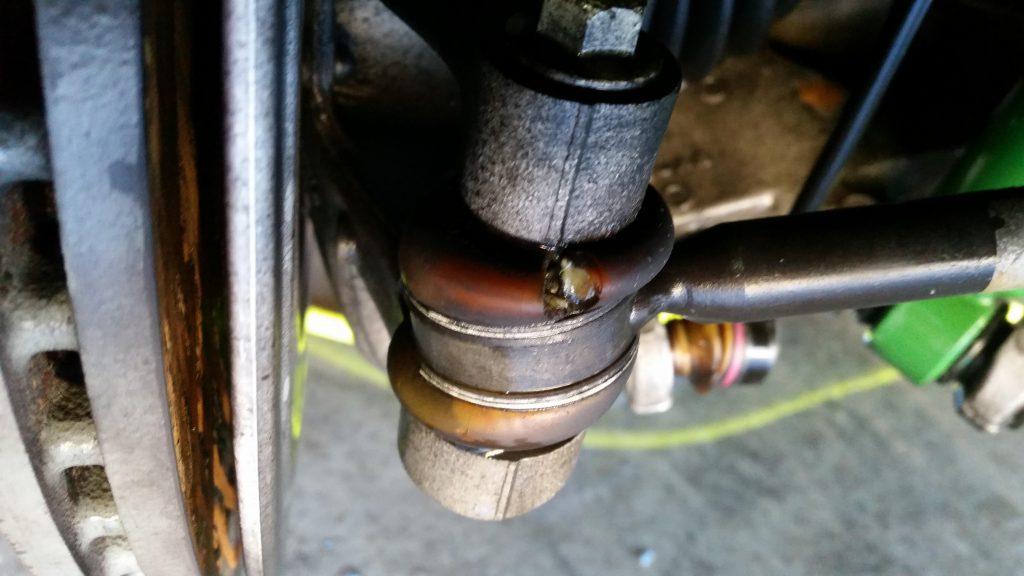Have you ever found yourself wondering why your steering wheel is groaning like an old man standing up? It’s a curious predicament, isn’t it? The simplest tasks, such as turning your steering wheel while navigating a corner or parking, can sometimes introduce unexpected sounds that might make you scratch your head. Today, we delve into the enigma of steering noise—what causes it, how to identify it, and why addressing it promptly is crucial.
When you operate your vehicle, the steering mechanism is one of the key systems that ensure a smooth and safe driving experience. However, like any mechanical device, components can wear down, become loose, or even fail outright. This can lead to a cacophony of sounds, particularly when you’re turning the steering wheel. What exactly could be causing this auditory annoyance? Let’s explore some of the main culprits behind steering noise.
The Power Steering System
The most prominent contributor to steering noise is often the power steering system. This hydraulic apparatus assists with steering efforts and eases the burden of turning the wheel. If the fluid levels are low or the fluid is old and contaminated, you might hear a whining or squealing noise when you turn. A failing power steering pump can also generate disturbing sounds, akin to a cat in distress. If you experience a loss of responsiveness along with the noise, this merits immediate attention.
Worn-out Components
Another common source of steering noise is the wear and tear on various components of the steering system. Consider, for example, the tie rod ends and ball joints. These parts are integral to the unhindered movement of the steering wheel. As they age, they can become loose, causing popping or clunking sounds every time you turn. Imagine trying to enjoy a nice cup of coffee, only to be distracted by the persistent clatter of dishes in the background; similarly, these noises can disrupt the otherwise tranquil driving experience.
The Rack and Pinion Assembly
The rack and pinion steering system also plays a significant role. This assembly converts the circular motion of the steering wheel into the linear motion necessary to steer the wheels. Over time, the components within can wear out, leading to grinding noises while turning. If the steering feels loose or there’s an excessive amount of play, it could indicate that the rack and pinion assembly needs repair or replacement. Governance over the steering system’s integrity is vital, just as one wouldn’t ignore signs of disarray in a well-kept garden.
Suspension Issues
Strikingly enough, some noises stemming from the steering system may actually originate from issues within the suspension. The various components, including bushings and shocks, are closely connected to how you steer your vehicle. If they are worn or damaged, turning the wheel might produce unfamiliar sounds. Think of these suspension parts as the unsung heroes of your vehicle—take them for granted, and they may well remind you of their importance with a noise or two!
High-Collision Frequency and the Dangers of Ignoring Noise
Ignoring unusual steering noises can lead to greater challenges down the road. A noisy steering wheel could signal an underlying issue that, if left unattended, could escalate into severe safety hazards. For instance, if the problem lies with the power steering fluid, a complete loss of steering control could ensue. One might ponder: Do you want to risk navigating a sharp turn only to discover your steering is compromised? Certainly not!
How to Address Steering Noise
Upon detecting such noises, it’s imperative to adopt a proactive approach. First, take heed and listen intently to the sounds: Are they high-pitched, low, rhythmic, or intermittent? Understanding these nuances can aid in diagnosing the problem. Consider also the frequency and conditions under which the sounds occur—turning left versus right, for example.
Next, inspecting fluid levels should be your first hands-on task. Check your power steering fluid; if it’s low, replenish it with the appropriate type. If you notice sludge or discoloration, it may be time for a complete fluid exchange.
If the problem persists, enlisting the help of a professional mechanic is paramount. They possess the tools and knowledge necessary to diagnose intricate issues effectively. They will assess the entirety of the steering and suspension systems, potentially saving you from costly repairs in the future.
A Preventative Mindset
Ultimately, cultivating a preventative mindset is vital for your vehicle’s longevity. Routine maintenance checks can catch issues before they escalate, allowing you to drive confidently without the unnerving sounds of your steering wheel echoing in your ears. After all, a vehicle should sound like a well-tuned instrument rather than a dissonant orchestra, shouldn’t it?
In conclusion, the next time you hear a strange noise while turning your steering wheel, remember that your car is likely trying to communicate with you. Taking action promptly can safeguard your automobile’s functionality and ensure your driving remains a pleasant experience. So, next time you’re confronted with that eerie sound, acknowledge it, and, above all, don’t ignore it!
